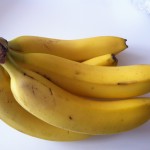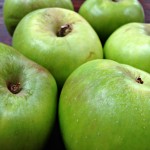how changing your diet may help IBS symptoms
IBS – Irritable Bowel Syndrome – is something that clients frequently present with. Constipation, diarrhea, wind, bloating and abdominal pain can be debilitating. In the last few weeks I’ve had three separate occasions when I’ve been asked about IBS and a low FODMAP diet , so this seems like an opportune moment to take a peek at it.
Many people seem to end up with a diagnosis of IBS, but are left unclear as to what they should be eating: more fibre? fibre supplements? avoid wheat? reduce stress levels (easier said than done)? Where to start seems daunting. This is the point at which people turn up on our doorsteps, seeking a nutritional programme to follow. Symptoms of IBS can all be associated with other conditions as well, so for me the non-negotiable part of working with someone on improving their digestion is that they have seen a medical professional about their symptoms. Self-diagnosis for digestive symptoms just isn’t good enough. You need to see your gp and ask for a referral if necessary.
Stress, poor diet (low fibre, high sugar and processed foods) and food intolerances can all be contributory factors to IBS. Nutritional Therapists can use stool tests to gain
more information about digestive health and/or breath tests to look at SIBO (Small Intestinal Bacterial Overgrowth): there may be an imbalance of bacteria in the gut, or unwanted yeasts, bacteria or parasites present. The causative factors for IBS are unique to each person. At the same time as working on these contributory factors, we try to calm down the gut to help reduce symptoms. So whilst improving, for instance, probiotic, fibre and water intake, we may use soothing foods and supplements such as peppermint oil or ginger to relieve symptoms. At the same time we remove gut-aggravating foods. This may be few specific foods, or a broad range of foods.
FODMAP is simply the name of a diet that removes a wide range of foods that are directly involved in causing excess gas in the gut. It was pioneered in Australia, has been fairly well-researched and is said to alleviate symptoms in around 60-70% of people. Some gastroenterologists and GPs recommend it.
FODMAP refers to:
Fermentable
Oligo-saccharides such as wheat, rye, onions, garlic, legumes, lentils, chickpeas,
Disaccharides (lactose) such as milk, soft cheese, yogurt
Mono-saccharides such as fructose, honey, apples, High Fructose Corn Syrup (found in processed foods)
And
Polyols (sorbitol, mannitol, maltitol, xylitol) such as apples, apricots, avocado, cherries, lychee, nectarines, pears, plums, prunes, mushrooms and artificial sweeteners
Put simply, these molecules in food can be poorly absorbed in the small intestine, and when they reach the large intestine, bacteria feed on them and create gas. For IBS sufferers, the more FODMAP foods eaten at the same time, often the worse the symptoms are.
So the FODMAP diet avoids these foods and gives lists of foods to eat and foods to skip. These include:
Foods to eat
Veggies: bean sprouts, green beans, pak choi, choy sum, peppers, carrots, herbs,
cucumbers, lettuce, tomatoes and courgettes
 Fruits: bananas, oranges, grapes and melons
Fruits: bananas, oranges, grapes and melons
Dairy: lactose-free milk and yogurts (if susceptible to lactose) and hard cheese
Protein: meat, fish, chicken, tofu, tempeh, almonds, pumpkin seeds
Wholegrains: gluten-free products (pasta, bread), sourdough spelt bread, rice, oats, quinoa
Foods to skip
Veggies: asparagus, artichokes, onions, leeks, garlic, sugar snap peas, onions, garlic, beetroot, savoy cabbage, celery, sweetcorn

Fruits: apples, pears, mango, watermelon, nectarines, peaches, plums
Dairy: cows milk, yogurt, soft cheese, cream
Protein: legumes and pulses
Wholegrains: rye, wheat, cashews, pistachios
The tricky bit is how to put all this together into a healthy eating plan where you’re not eating bananas and oats all day. You’re also avoiding a lot of healthy foods (apples for instance) and so the FODMAP diet is intended to be short term – for six weeks, and then foods reintroduced.
If you’re considering avoiding foods at all for IBS symptoms, it’s really important have guidance on how to maintain a healthy diet over this time, how to reintroduce foods, and vitally, how to tackle the unique causes of your symptoms at the same time.
FODMAP is just one eating plan to help relieve symptoms; remember that there are other, less extreme and more user-friendly eating plans that might suit you better. A tailored nutrition programme that addresses both your individual causes and symptoms may be just as effective – and easier to manage.
We hope you enjoy this blog post, let us know your thoughts in the comments below or on social media – we’re on Twitter, Facebook, Instagram and Pinterest. And don’t forget to sign up to our newsletter to receive a monthly update of our recipes, nutrition tips and expert advice.





